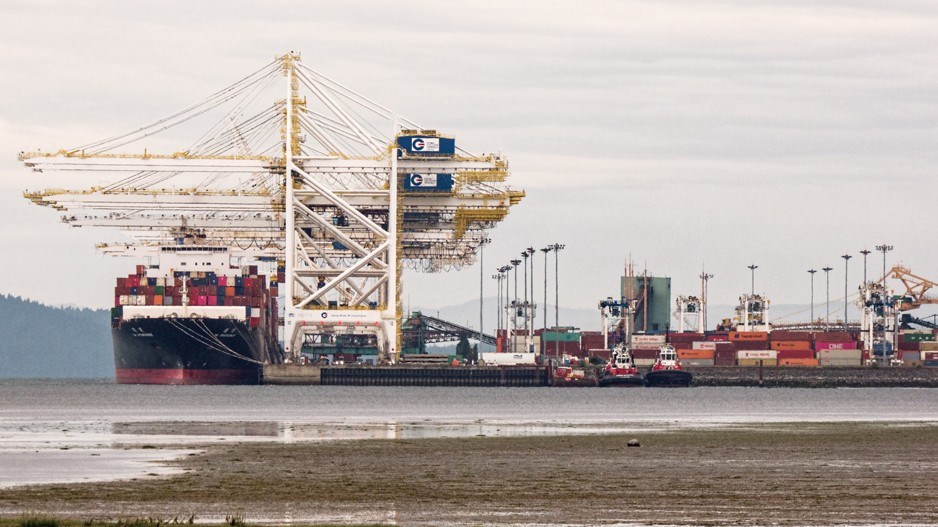The B.C. economy kept prognosticators on their toes throughout 2023.
Everything from ongoing labour unrest to surging interest in artificial intelligence captivated the business community this year.
Here is a selection of top stories that helped shaped 2023:
January
Event: Ban on foreign buyers comes into effect
Significance: The two-year ban on residential real estate purchases for non-Canadians comes into force with the purpose of cooling real estate markets across the country.
March
Event: John Rustad acclaimed leader of BC Conservatives
Significance: The former BC Liberal MLA found himself ousted from caucus before joining the BC Conservatives. His party would soon be running neck and neck with his former party – the rebranded BC United – in the polls.
March
Event: Ritchie Bros. completes acquisition of IAA Inc.
Significance: The contention, multibillion-dollar acquisition sets the Burnaby-based auction giant to eventually rebrand and reincorporate its HQ in the U.S. by year’s end.
April
Event: Glencore makes unsolicited bid for Vancouver-based mining giant Teck Resources Ltd. for US$23 billion
Significance: Teck rejects the bid, setting off a monthslong back-and-forth among global mining players.
April
Event: Roberts Bank Terminal 2 gets green light from feds
Significance: The expansion is set to create more than 17,300 ongoing jobs and an estimated $3 billion in GDP annually once built. It expands on an existing terminal but received backlash due to environmental concerns.
April
Event: Homes for People plan announced
Significance: Starting with a $4-billion investment over three years, the plan commits $12 billion over a decade to build housing in B.C.
April
Event: Â鶹´«Ã½Ó³»Canadians baseball team sold to U.S. holding company
Significance: Diamond Baseball Holdings, which owns and operates nearly 20 Minor League Baseball clubs, continues its recent "buying spree" by adding beloved local team to its portfolio.
May to September
Event: Hollywood writers go on strike
Significance: Spring job action south of the border sees activity in B.C.’s film industry – which depends significantly on Hollywood – begin to slow.
May
Event: BC Housing audit released
Significance: A forensic investigation by Ernst and Young found mismanagement related to a conflict of interest between the former CEO, Shayne Ramsay, and his spouse, Janice Abbott, the CEO of Atira Women's Resource Society, BC Housing's largest housing operator.
Date: July
What: B.C. port strike begins
Significance: Workers at Canada’s largest port walk off the job. The two-week job action would go on to disrupt billions of dollars in trade and business activity.
July to November
Event: Screen Actors Guild strike
Significance: Striking Hollywood actors paralyze much of B.C.’s film industry amid the ongoing writers strike, limiting local work mostly to domestic productions, animation and some independent films.
September
Event: Municipal housing targets set
Significance: The B.C. government announces the 10 municipalities, dubbed “the naughty list,” that have been chosen to build a combined target of 60,123 housing units under the Housing Supply Act.
October
Event: B.C. regulates short-term rentals
Significance: New provincial regulations are introduced that aim to return short-term rental properties to the long-term rental market and create a framework that tracks properties on platforms such as Airbnb and Vrbo.
November
Event: B.C. Pay Transparency Act comes into effect
Significance: According to the act, B.C. employers must list in their job ads the pay range that exists for a particular position and cannot ask job candidates to disclose their pay history.
November
Event: Province tables four housing bills
Significance: The B.C. NDP government introduces four significant pieces of housing legislation in roughly a week that will significantly transform density and housing in the province.
November
Event: Teck Resources agrees to sell a 77-per-cent stake in its steelmaking coal operations to Swiss commodities giant Glencore for $6.9 billion, while a side-deal includes selling a 20-per-cent stake in Teck’s coal operations for US$1.7 million to Japan’s Nippon Steel Corp.
Significance: Teck is one of B.C.’s largest companies and the transaction sets it on a new path as it tries to divest itself of assets most responsible for pollution.




